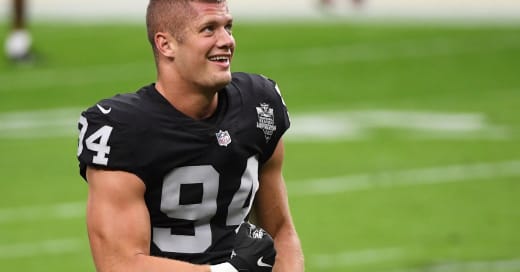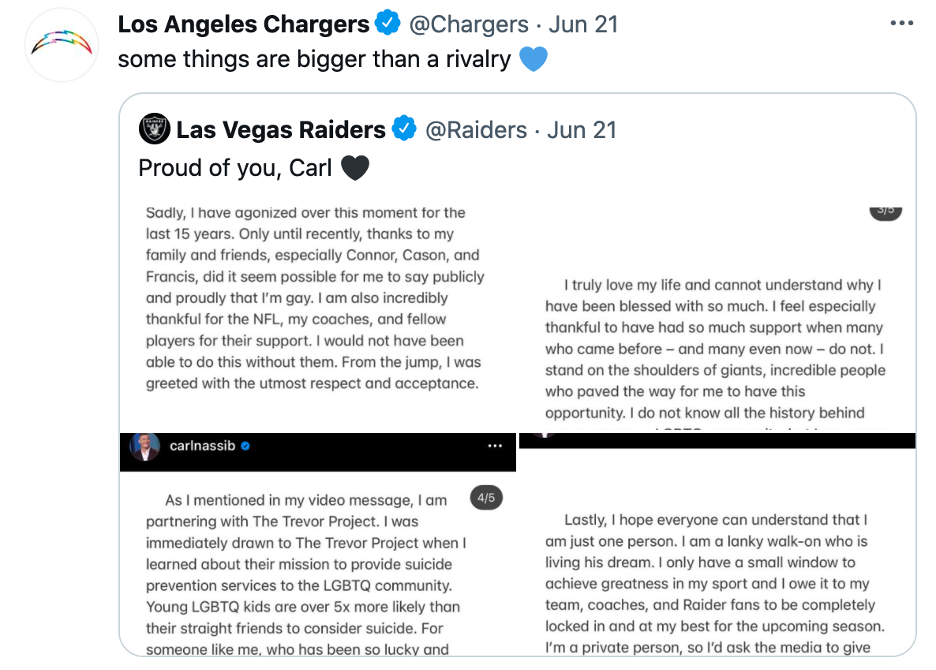Welcome to another weekly edition of Sports-Tech Biz! Every Friday, we learn about intriguing topics related to sports, business, and technology. If you’re reading this online or in a forwarded email, sign up for the newsletter:
What’s good? Happy Friday!
According to psychology, as humans, we are wired to create mental shortcuts and assumptions about the things surrounding us.
Stereotypes are the negative assumptions we create about people.
We bring stereotypes down by questioning our assumptions, learning about the things and people surrounding us, and educating our peers about it.
Today, we’ll learn about stereotypes in sports. Shall we?
Note: I co-wrote this essay with Andrea Simon – our Head of Content! 🤓
Stereotypes in Sports
From the first Olympic Games in Ancient Greece to the early twentieth century, sports have been primarily male-dominated.
Initially, women faced harsh judgment, skepticism, and rejection from the public because of gender inequality and the demanding nature of sports.
In most modern history, the sports industry has struggled with racism, diversity, and stereotyping – by judging athletes’ looks, actions, and thoughts.
We don’t have to go back hundreds of years to see it.
In 2018, LeBron James was publicly slandered by a Fox reporter telling him to “shut up and dribble” after expressing his political opinion.
Remember Colin Kaepernick? In 2016, the critics kicked him out of the league for his actions against police brutality.
Due to the fear of judgment and punishment by the teams, leagues, fans, and media, athletes have feared stepping out of their comfort zone to share personal stories and opinions on specific topics.
There has not been a single active NFL athlete publicly announcing their identity in the LGBTQ+ community. Until now.
Last Monday — Carl Nassib — the defensive lineman of the Las Vegas Raiders, came out as publicly gay.
Not only was this a significant step for the football industry, but a giant leap for LGBTQ+ athletes around the world.
Nassib received support from countless teammates, fans, and rivals. He also announced that he would donate $100,000 to The Trevor Project — the leading national nonprofit that provides suicide and crisis prevention services to youth in the LGBTQ+ community.
Even though pride month is almost over, it is essential to bring continued awareness to communities around the world of this cause.
As sports fans, executives, or stakeholders, we must learn, challenge, and educate our peers about topics related to stereotypes, racism, diversity, and inclusion to make the industry (and the world) a better place.
🎙 Halftime Snack of the Week
From Rock Climbing to Building Sports Technology
The latest podcast episode features Pedro Fernandes Mestriner – CEO & co-founder of Horizm!
Besides having a fascinating and unique background, Pedro is a fun and very interesting person.
In our snack, we talked about:
· Rock climbing
· Strategy
· Founder-product-market fit
· Business development
· Pedro’s vision for Horizm and the sports industry
· Risk management
Listen on Apple | Spotify | Google
QUICKIES
🥏 The Rise of the $10 Million Disc Golf Celebrity; How much can athletes make in niche sports? A whole lot more than you might think.
📈How to make the right decisions when going ‘over the top’; Former Halftime Snacks guest and reader of the magazine Murray Barnett warns sports rights-holders to be careful of getting it wrong when developing a streaming service. A must-read!
On the emoji scale, how much did you enjoy today’s newsletter?
🙄 | 😐 | 🙂 | 😃 | 🤩
Until next week,
Ronen Ainbinder
Twitter: @Ronenain
Website: ronenainbinder.com
Book a call with me: superpeer.com/ronen
-
Sports-Tech Biz
Twitter: @sports_techbiz
Instagram: @sportstechbiz
Read more: sportstechbiz.substack.com.
-
Halftime Snacks Podcast








